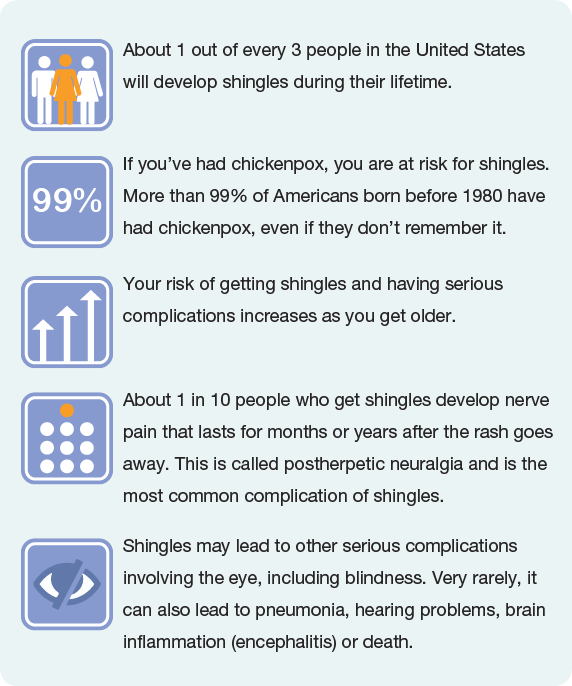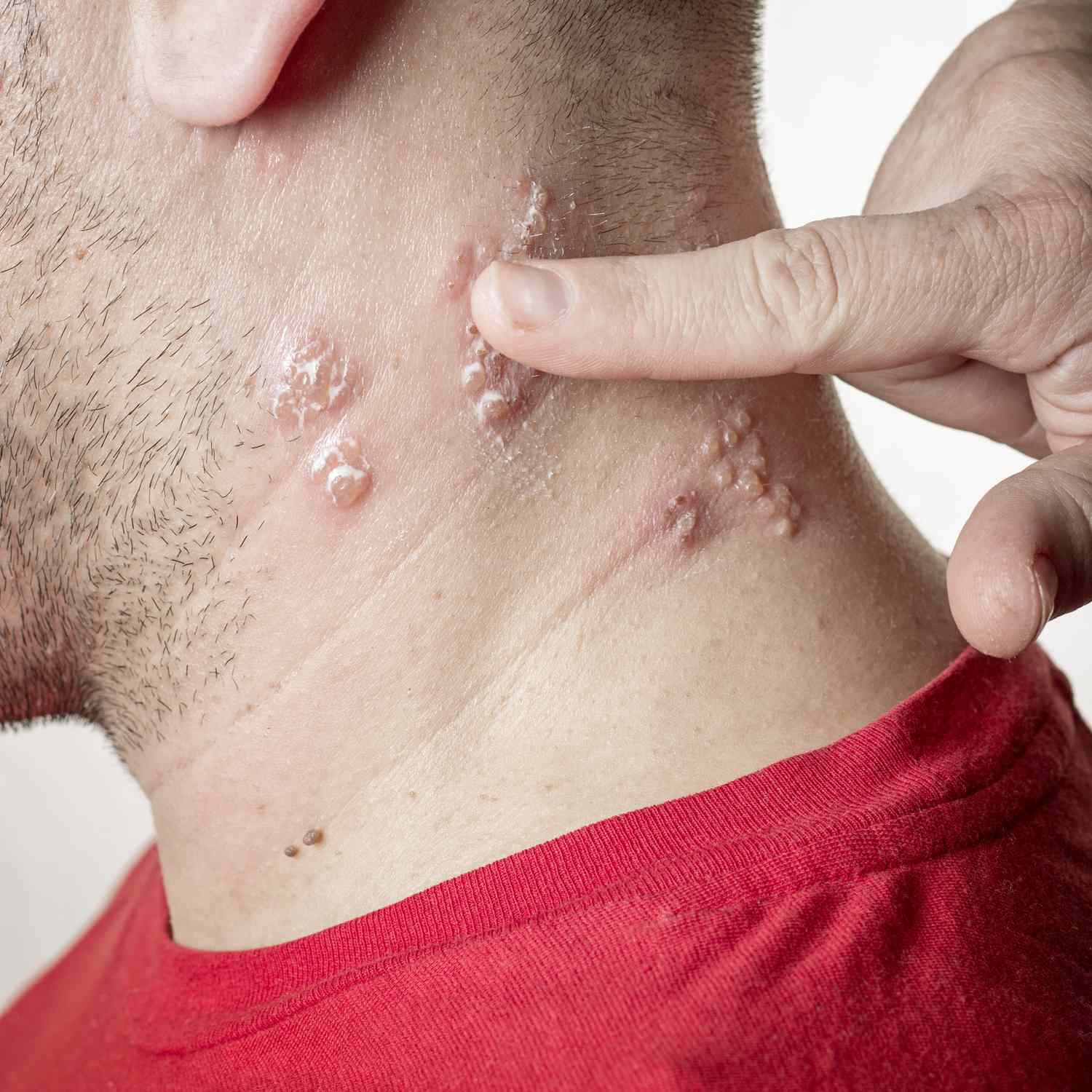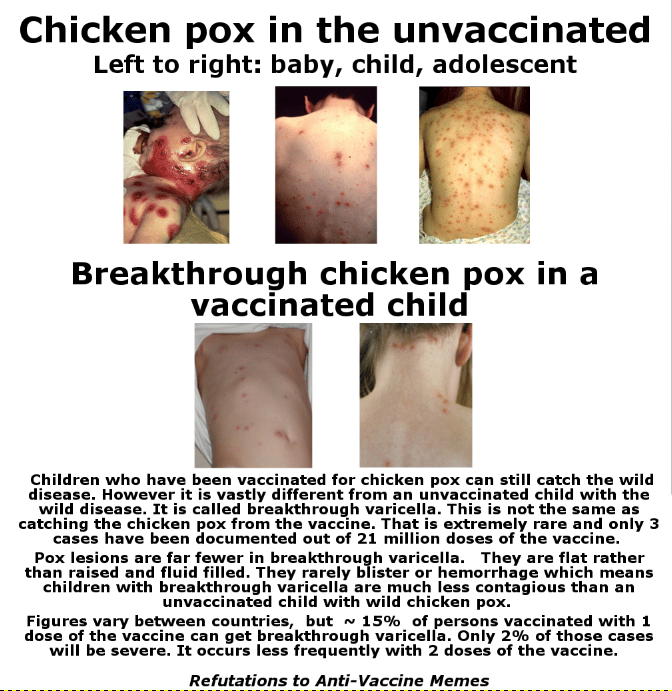Chickenpox Shingles And Vaccines: Expert Shares What You Need To Know
Chickenpox and shingles generally wont kill you, but for some adults, they could result in a trip to the hospital. So with a new shingles vaccine now available, should you consider vaccination to avoid chickenpox and shingles as an adult?
Physician Sharon Orrange, MD, clinical associate professor of medicine at the Keck School of Medicine of USC, said the answer depends on a few factors.
What is chickenpox, exactly?
Its an infection caused by the varicella zoster virus. In children, its usually a mild disease that runs its course in five to 10 days and requires no medical intervention. But in those who develop chickenpox as teens or adults, theres a risk of complications, including pneumonia, skin infections and brain swelling.
Whats the difference between chickenpox and shingles?
Adults can develop shingles if theyve already had chickenpox. Also called herpes zoster, shingles is a reactivation of the virus that causes chickenpox. After you recover from chickenpox, the virus doesnt entirely disappear it lies dormant in nerve tissue near your spinal cord and brain. When it springs into action again as a painful skin rash, thats shingles.
This time, the pain will likely come before the rash some people only experience the pain without any visible symptoms. Like chickenpox, shingles usually isnt life-threatening, but it can cause complications, including neurological problems, skin infections and eye infections that lead to vision loss.
Connie Sommer
Can You Get Shingles If You Havent Had Chickenpox
No. You cant get shingles if youve never had chickenpox, but you can get chickenpox from someone who has shingles. If youve never had chickenpox and you come into direct contact with the oozing, blister-like rash of someone with shingles, the varicella-zoster virus can infect you and you would develop chickenpox.
Once youve had chickenpox, you could develop shingles at some point in your life. This is because the varicella-zoster virus never fully goes away after youve had chickenpox. It lies quietly inactive in your nerve tissue. Later in life, the virus may become active again and appears as shingles.
Can you get chickenpox more than once?
Its rare to get chickenpox twice in your life. Once youve had chickenpox, youre usually immune to it for the rest of your life. However, its not totally impossible. If you have a severely weakened immune system , you can get chickenpox a second time. If youve had chickenpox, you are more likely to get shingles at some point in your life than a repeat bout of chickenpox.
Recommended Reading: What To Take For Nerve Pain From Shingles
What If Ive Never Had Chickenpox
Almost everyone born before 1980 tests positive for exposure to varicella, Orrange said. Thats why the federal Advisory Committee on Immunization Practices considers people born before 1980 immune to the varicella virus. Even if you never broke out in the telltale rash, if youre 38 years old or older, you almost certainly have the virus lying dormant in your system.
Don’t Miss: Does Blue Cross Blue Shield Cover The Shingles Vaccine
How Long After Ive Received The Shingles Vaccine Am I Contagious
With the currently authorized shingles vaccine, Shingrix, you wont be contagious. The old vaccine, Zostavax, used a weakened form of the live varicella-zoster virus. Therefore, people worried about spreading the disease to the people around them.
Shingrix doesnt use a live version of the varicella-zoster virus. It is inactivated, which means it uses a dead version of the virus. Therefore, you have no risk of transmitting the disease to anyone.
A note from Cleveland Clinic
No one likes to get shots, especially for something youve already been vaccinated for. But the newer version of the shingles vaccine is one youll want to offer up your arm for. The Shingrix vaccine is more than 90% effective at helping you prevent shingles. Since most of us have had chickenpox in the past, the shingles vaccine is an easy way to prevent the dormant chickenpox virus from creeping up and hitting you again with shingles.
Can You Get Shingles In The Eye

Its most common to get the shingles rash on your chest, back or legs but you can get shingles on the face and eye, Rapuano says. About 15% of cases involve shingles in the eye area, he says.
However, theres a difference between having shingles around the eye and having shingles in the eye, which doctors refer to as eye involvement, Rapuano says. A patient can have shingles around the eye area without the eye itself being involved, he says.
About half of people who have shingles on the forehead or nose will also have eye involvement.
Ocular shingles typically occurs in one eye on the same side of the face as the rash. It typically occur after the shingles rash on the body has resolved, Rapuano says.
A patient who has had shingles on the face may feel like theyre healing well but then notice a symptom such as redness in the eye. When this happens, patients need to see an eye doctor right away, Rapuano says.
Recommended Reading: Can Shingles Flare Up Again
What Are The Advantages Of Getting The Shingles Vaccine
The shingles vaccine reduces your risk of getting shingles. Shingles causes a painful rash that usually develops on one side of your body or face. Some people describe the pain as an intense burning or shooting sensation. The rash is often a single strip that wraps around one side of your body or is on one side of your face. It consists of blisters that normally crust over in seven to 10 days. The rash generally clears up within a month.
Some people with shingles also experience additional symptoms including fever, headache, chills or upset stomach.
For some people, the pain from the rash can last for months or even years after the rash goes away. This long-term pain is called postherpetic neuralgia , and it is the most common complication of shingles.
What Are Signs And Symptoms Of Shingles
Signs and symptoms of shingles typically occur over one side of the face or body and may include:
- Pain, which can vary in intensity
- Burning sensation, numbness or tingling, and itching
- Raised red rash, which usually appears a few days after pain
- Multiple blisters, which appear in a stripe pattern and may contain fluid
Read Also: Can Shingles Be All Over Your Body
Will There Be Any Side Effects From The Shingles Vaccination
There are 2 shingles vaccines: Zostavax and Shingrix .
With both vaccines it’s quite common to get redness and discomfort at the vaccination site, headaches and fatigue, but these side effects should not last more than a few days. See a GP if you have side effects that last longer than a few days, or if you develop a rash after having the shingles vaccination.
Read more about the shingles vaccine side effects.
So Should I Get The Chickenpox Vaccine Or The Shingles Vaccine
For most healthy people, if youre between 30 and 50 years old, theres no need for either vaccine, Orrange said. There are some exceptions, including health care workers, pregnant women, teachers and those who are HIV-positive. If youre an adult who hasnt received the vaccine or you think youve never been exposed to chickenpox, you can ask your primary care doctor to run a blood test called varicella titers. It shows your level of chickenpox immunity.
But if youre 50 or older, you can and should get the new shingles vaccine, Shingrix, whether or not you remember getting chickenpox in childhood. Its given as a shot in two doses, two to six months apart.
Theres also an older shingles vaccine called Zostavax. Its given to those 50 and over with certain medical conditions, and to people 60 and over. Zostavax is 19 times stronger than the chickenpox vaccine. Its unknown, by the way, whether the shingles vaccines protect against the varicella virus that would lead to chickenpox in adults who were never exposed. The makers of Shingrix or Zostavax would have to run a study on that question, Orrange said, but theres little incentive to do so since a chickenpox vaccine already exists.
You May Like: What Does A Bad Case Of Shingles Look Like
Can You Get Shingles After Youve Been Vaccinated
While the shingles vaccine is highly effective, some people can still get shingles. However, people who do get shingles after getting the shingles vaccine usually have milder symptoms and a shorter illness. Youll also be less likely to have complications from shingles, including postherpetic neuralgia.
How Is Chickenpox Diagnosed
Chickenpox is usually diagnosed by a doctor when they examine your skin rash. Your doctor may also ask if youve had recent contact with anyone who has chickenpox and about your vaccination history.
In some cases, they may do tests on fluid from your blisters or blood tests to confirm that you have chickenpox.
Recommended Reading: What Does Shingles Look Like On Hands
Shingles And Contagious Transmission
Chickenpox is highly contagious. A person with the infection can easily pass it on to another person via direct contact or through the air.
If you have shingles, however, you cannot give it to another person. Instead, you can transmit the varicella-zoster virus to someone, and they can develop chickenpox if they are not immune to it.
When shingles develops into open blisters, the fluid inside the blisters contains the infectious virus.
Because of this, anyone who comes into direct contact with these blisters or inhales infected droplets can contract the virus if they are not immune to chickenpox. However, the rates of transmission are low.
Experts say that the virus cannot spread when the rash crusts. The risk of spreading also reduces when you cover the rash properly and wash your hands well.
When Did The Chickenpox Vaccine Come Out

Healthcare providers started giving the chickenpox vaccine in 1995. Chickenpox used to be a very common childhood disease. Before the chickenpox vaccine became available, about 4 million people got chickenpox each year. Between 10,500 and 13,000 people were hospitalized, and 100 to 150 people died each year from chickenpox.
Read Also: Am I At Risk For Shingles
Reasons To Get The Shingles Vaccine
Once a person develops chickenpox after contracting the varicella-zoster virus, the virus never leaves the body. It remains dormant in the nerve roots and can reappear as shingles later in life.
The primary symptom of shingles is a painful rash on one side of the body, most often on the torso or face. People initially have pain or a burning sensation on the skin without a rash, and then painful blisters develop. The rash lasts approximately seven to 10 days and fully clears within two to four weeks.
The likelihood of developing shingles increases dramatically after age 50. Therefore, the Centers for Disease Control and Prevention recommends that all adults age 50 and over receive two doses of Shingrix to prevent shingles. The vaccine is recommended even if a person is unsure if they have ever had chickenpox.
People with weakened immune systems are at higher risk for shingles. Therefore, the Food and Drug Administration also recently approved Shingrix vaccination for adults age 18 and older who are at risk for shingles due to immunodeficiency or immunosuppression caused by an underlying disease or medication.
Who Should Not Get The Shingrix Vaccine
The Shingrix vaccine should be avoided in the following cases:
- History of allergic reaction to the first dose of the shingles vaccine
- History of allergy to any of the ingredients in the vaccine
- Current, ongoing shingles infection
- Currently pregnant or breastfeeding
- Negative test result for the varicella zoster virus
Read Also: Age For Shingles Vaccine 2021
When Should I See My Doctor
The main symptom of chickenpox is an itchy red rash, which is also an early sign of a range of other conditions. You should see your doctor if you have symptoms of chickenpox to be sure you are diagnosed correctly.
Because chickenpox is so contagious, you should call your doctor before your visit, or tell the reception staff when you arrive, so you can be seated away from other people.
You should see your doctor urgently if you have severe symptoms, including:
- sore, red areas around blisters
Severe symptoms may be a sign of complications due to chickenpox that need medical treatment.
Chickenpox is a notifiable disease in most states. This means that your doctor must report cases of chickenpox to the local health authorities, who can help control an outbreak if needed.
Who Should Not Get The Shingles Vaccine
Some people shouldnt get the shingles vaccine. These people include those:
- Who currently have shingles.
- Who have had a severe allergic reaction to the shingles vaccine in the past.
- Who have tested negative for immunity to the varicella-zoster virus, meaning youve never had chickenpox. If youve never had chickenpox, you should get the chickenpox vaccine.
- Who are ill. You should wait until your illness has passed before receiving the shingles vaccine.
- Who are pregnant or breastfeeding.
You May Like: What Can You Put On Shingles
What Are The Symptoms Of Shingles On The Scalp
If you have shingles on the scalp, there are specific symptoms that youre bound to notice:
Who Should Not Be Vaccinated Against Chickenpox
Chickenpox vaccine is a live vaccine. This means that it can cause chickenpox, although it is usually milder, and it should not be used for certain groups of people who have reduced infection-fighting ability , such as if you:
- are taking high-dose oral steroids such as prednisone or dexamethasone
- are getting chemotherapy or radiation
- have a condition that reduces your immunity such as cancer or HIV
- have active untreated TB
- have had another live vaccine within the past 4 weeks.
Read Also: Price Of Roofing Shingles At Lowe’s
How Effective Is The Shingles Vaccine In Preventing Shingles
The shingles vaccine can provide strong protection against shingles and postherpetic neuralgia , the most commonly occurring shingles complication.
The shingles vaccine is 97% effective in preventing shingles in people ages 50 to 69 years old. Its 91% effective in people ages 70 years and older.
In addition, the shingles vaccine is 91% effective in preventing PHN in people ages 50 to 69 years old. Its 89% effective in people ages 70 years and older.
How Long Does Shingrix Last

The immunity conferred from Shingrix for the prevention of shingles is thought to last longer, and be more effective than the previous shingles vaccine, Zostavax.
The immune response from the shingles vaccine Shingrix is reported to be at least nine years based on the cellular response to the vaccine according to the CDC. However, âimmune responseâ doesnât necessarily correlate to vaccine effectiveness in terms of preventing episodes of shingles.
Other data indicates that the Shingrix vaccine maintains greater than 90% efficacy at least four years after vaccination according to GlaxoSmithKline, the manufacturer of the vaccine.
In addition, the New England Journal of Medicine has reported that Shingrix maintains around 88% efficacy at least four years after vaccination in patients vaccinated 70 years of age or older.
Also Check: Will Shingles Vaccine Help Genital Herpes
Why Is Shingrix Administered In Two Doses
Shingrix is typically given in two doses, usually as a shot to the upper arm.
A 2021 study found that adults over 65 were significantly less likely to develop either shingles or PHN after getting two doses of Shingrix than they were after one dose. Two doses of Shingrix also offered better protection against shingles complications to adults over 80 and immunocompromised adults.
Previously, Zostavax was offered to older and immunocompromised adults to prevent shingles, PHN, and other shingles-related health problems. Zostavax is a live vaccine, which means it contains a weakened version of the herpes zoster virus. Shingrix is a recombinant vaccine, meaning that it uses only a small piece of the virus.
In 2017, the Food and Drug Administration approved Shingrix for the prevention of shingles and related complications. Zostavax is no longer available in the U.S. People who have gotten Zostavax in the past should now get Shingrix.
Studies have shown that Zostavaxa one-dose vaccineis generally less effective than two doses of Shingrix in preventing shingles complications among older and immunocompromised adults. Shingrix currently offers the best chance of protection against shingles, PHN, and shingles-related hospitalization.